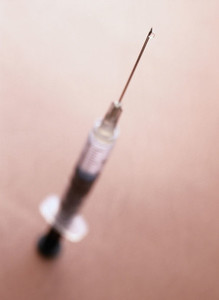The FDA has approved the first generic versions of Johnson and Johnson’s (J&J) blockbuster antibiotic Levaquin (levofloxacin), used to treat bacterial infections of the skin, sinuses, kidneys, bladder, and prostate caused by specific germs.
Generics of antibiotic Levaquin approved by FDA
Home/Pharma News
|
Posted 01/07/2011
 0
Post your comment
0
Post your comment

The drug, which had US sales of US$1.3 billion in 2010, is also used to treat bacterial infections that cause bronchitis or pneumonia, and to treat those exposed to inhalational anthrax.
Levaquin (levofloxacin) has, however, been at the centre of some controversy recently, due to the risk of tendon ruptures and tendonitis associated with such fluoroquinolone drugs and the pending lawsuits.
Generic tablet, oral solution and injectable solution dosage forms of generic levofloxacin have been approved for 12 manufacturers: Akorn, Aurobindo Pharma, Dr. Reddy’s Laboratories, Glenmark Generics, Hi-Tech Pharmacal, Lupin, Mylan Pharmaceuticals, Sagent Strides LLC, Sandoz, Teva, Torrent Pharmaceuticals, Wockhardt.
Dr Keith Webber, Deputy Director of the Office of Pharmaceutical Science in the FDA’s Center for Drug Evaluation and Research said that ‘generic drugs are important options that allow greater access to health care for Americans’.
The patent for Levaquin expired in June 2011, leaving the market open for generic erosion. The expiry of the patent is very good news for the generics industry and patients but not such good news for J&J, which is set to lose out significantly to the generics.
Once drugs lose patent protection, lower-price generics rapidly gain market share, often siphoning off as much as 90% of sales. Benefits to patients are substantial, with generics averaging about 30% of the price of the brand-name originals.
Related article
2011’s biggest patent expiries
Source: Pharmaceutical-technology, The Street
Guidelines
US guidance to remove biosimilar comparative efficacy studies
New guidance for biologicals in Pakistan and Hong Kong’s independent drug regulatory authority
Policies & Legislation
EU accepts results from FDA GMP inspections for sites outside the US
WHO to remove animal tests and establish 17 reference standards for biologicals
Formycon signs new aflibercept biosimilar pacts and launches ranivisio in Europe

Home/Pharma News Posted 13/11/2025
Bio-Thera and Stada expand biosimilars alliance to include tocilizumab

Home/Pharma News Posted 20/10/2025
The best selling biotechnology drugs of 2008: the next biosimilars targets








Post your comment